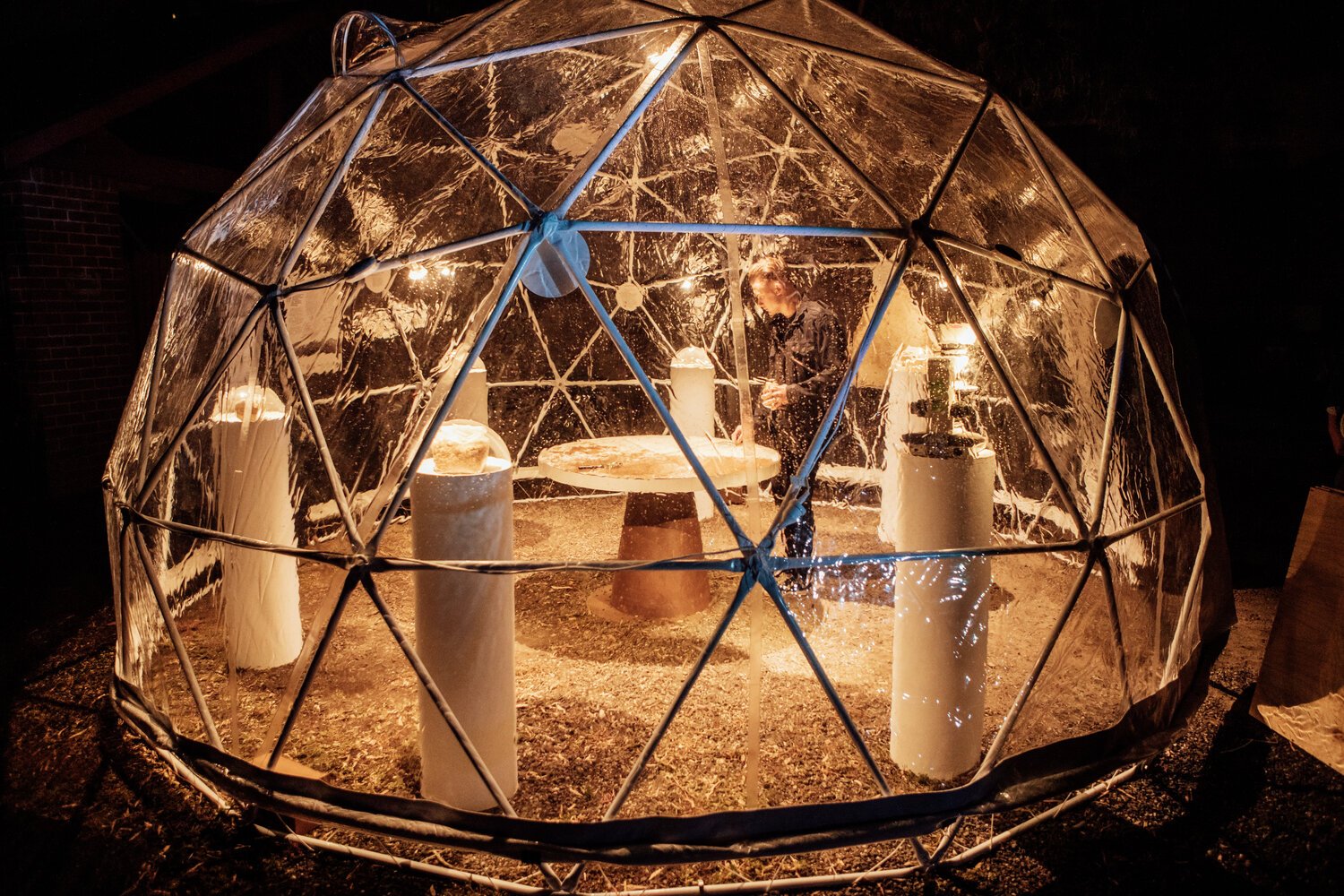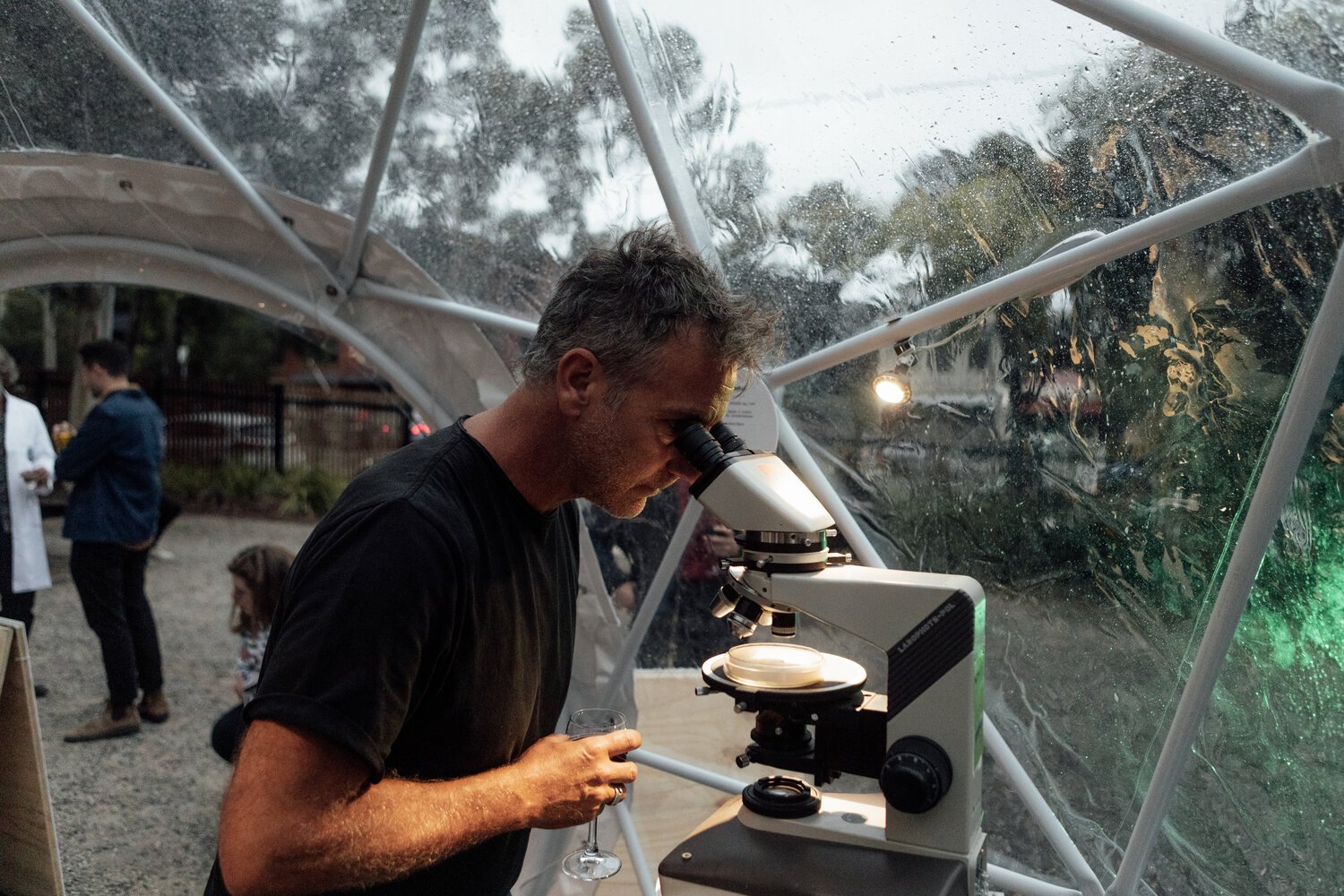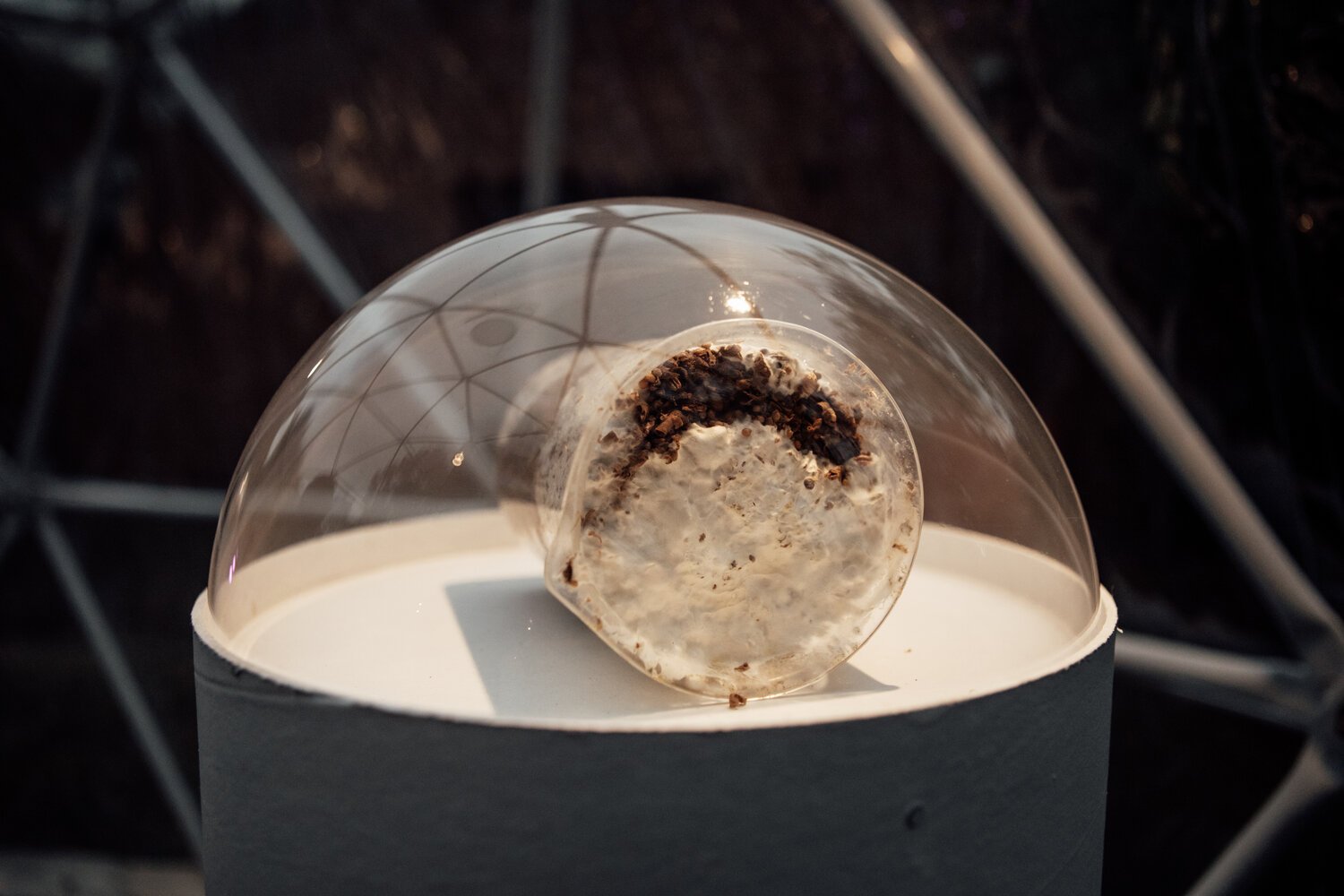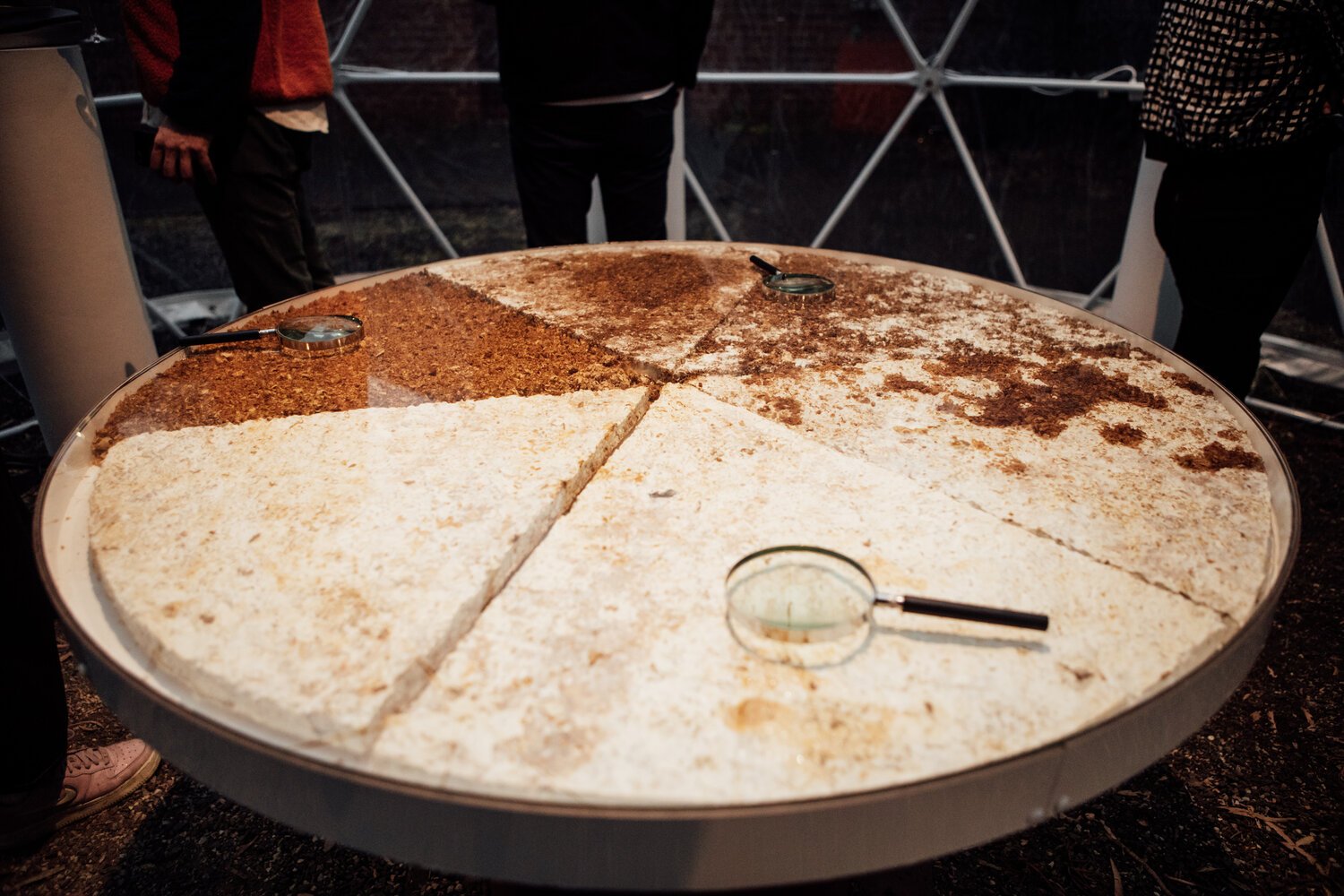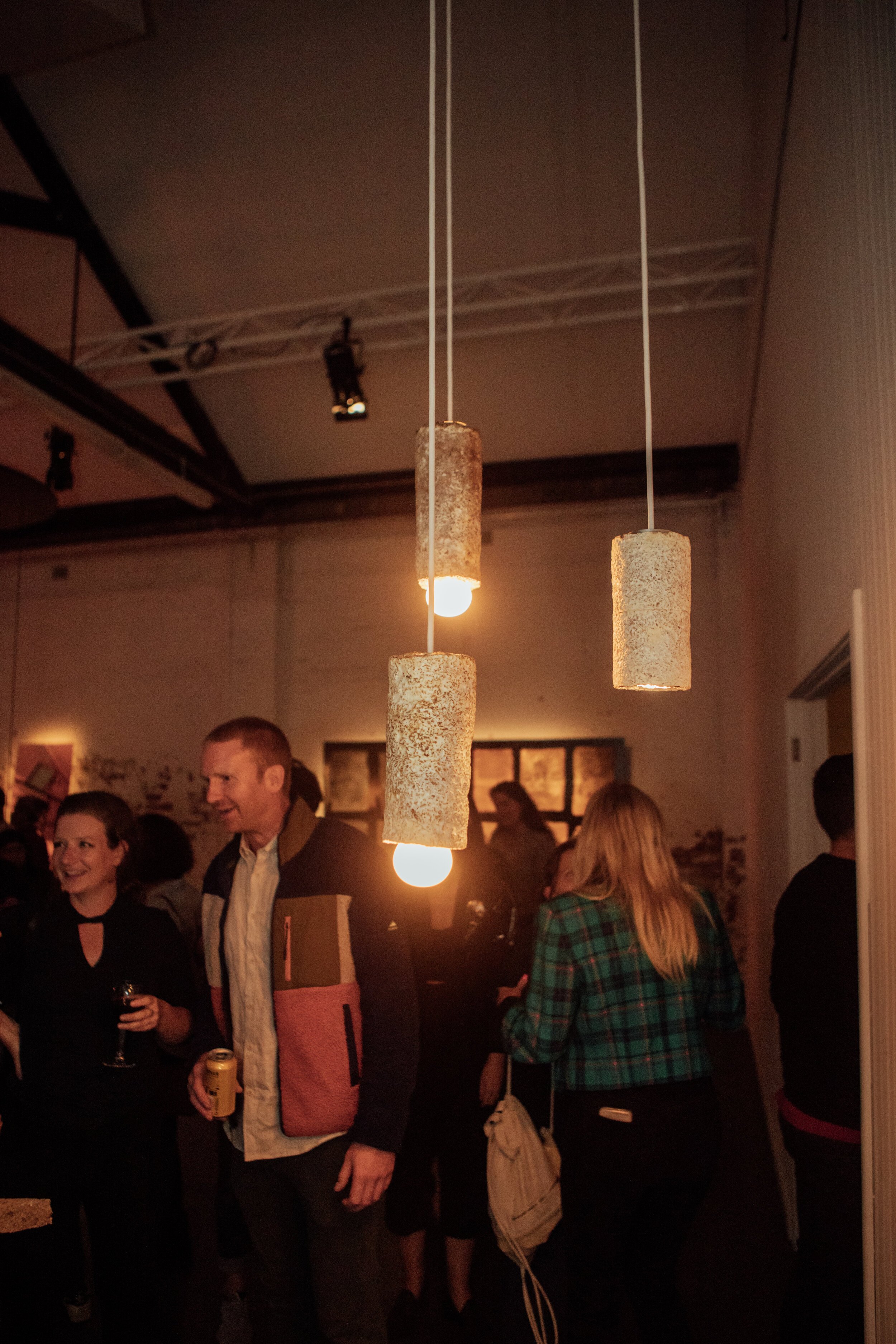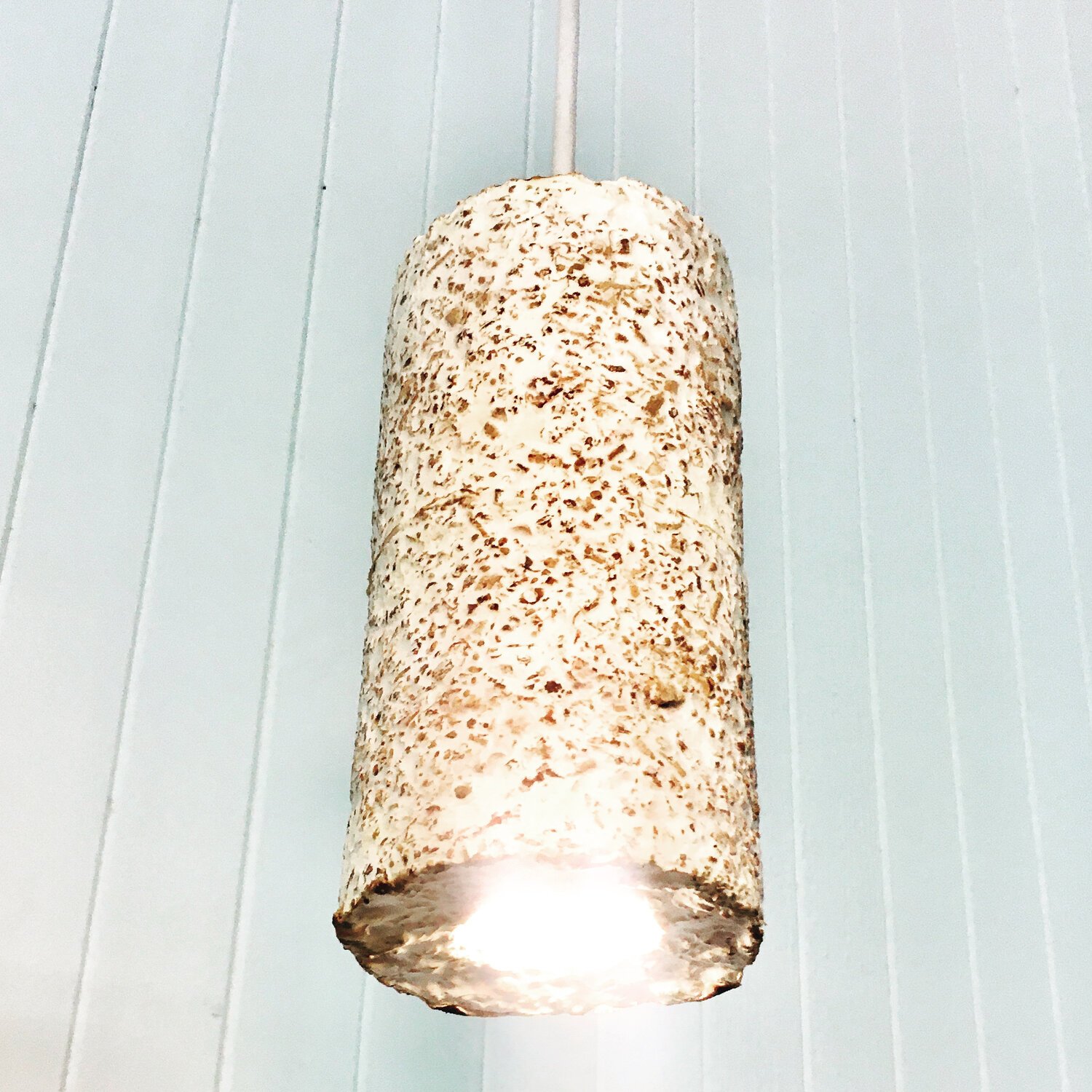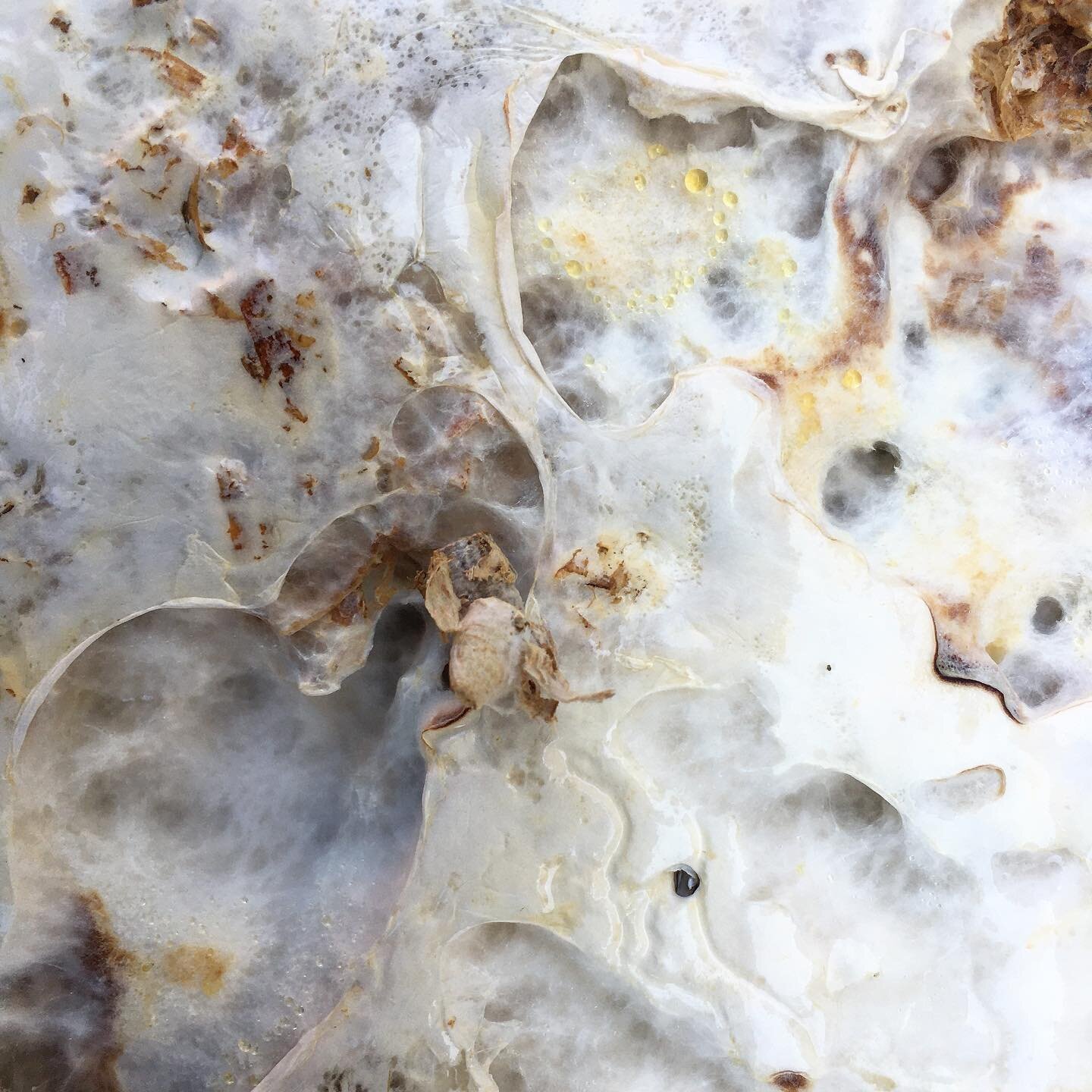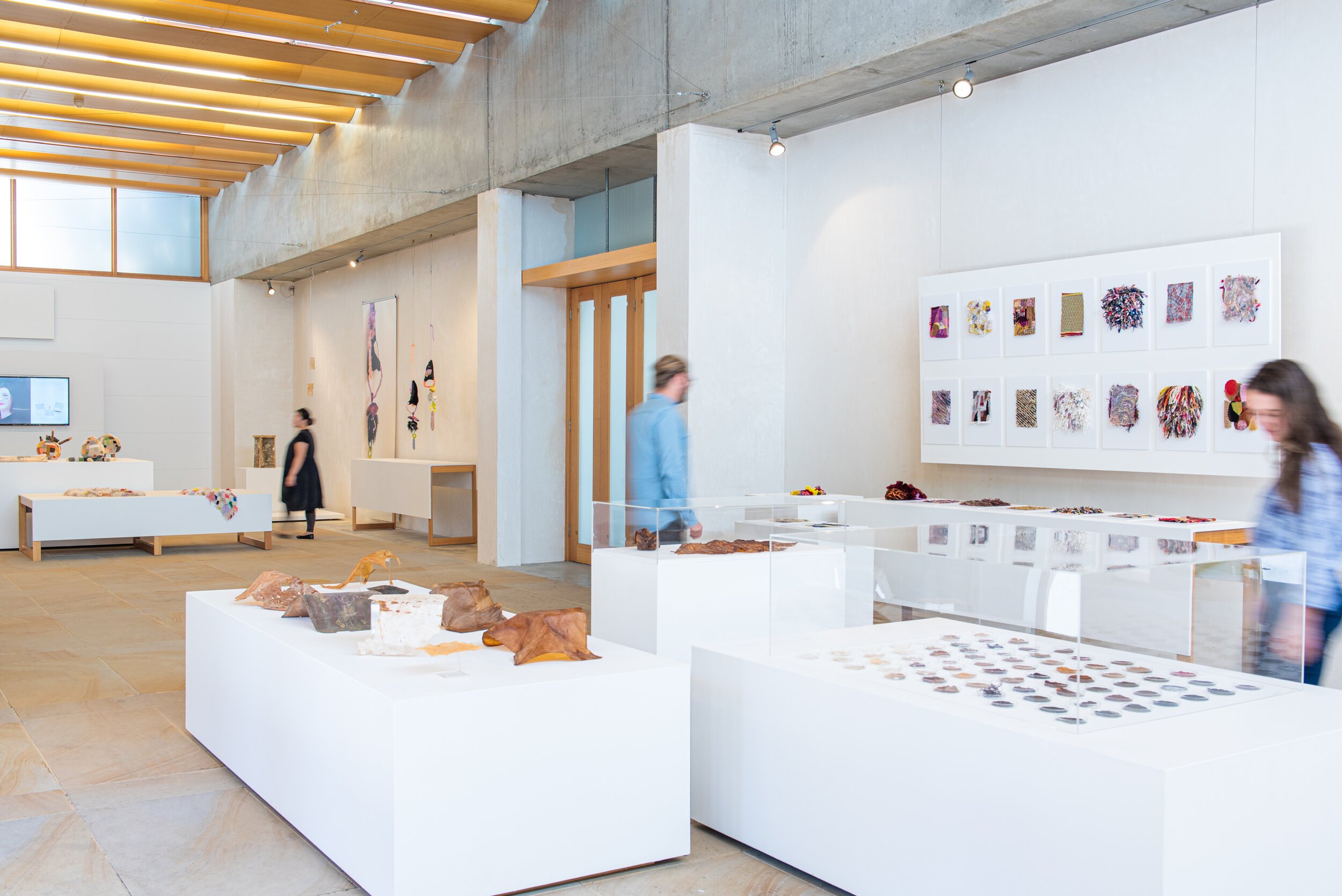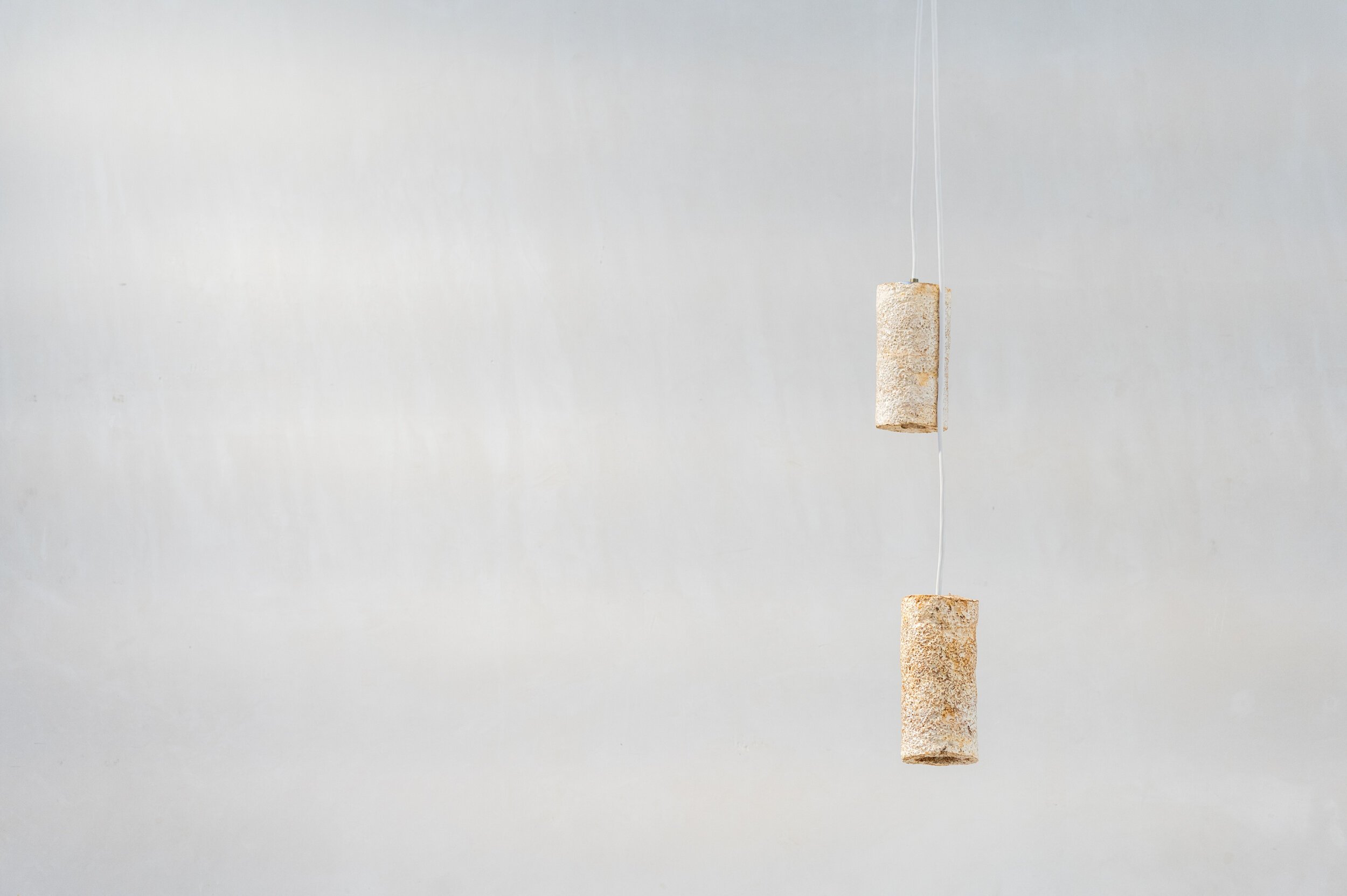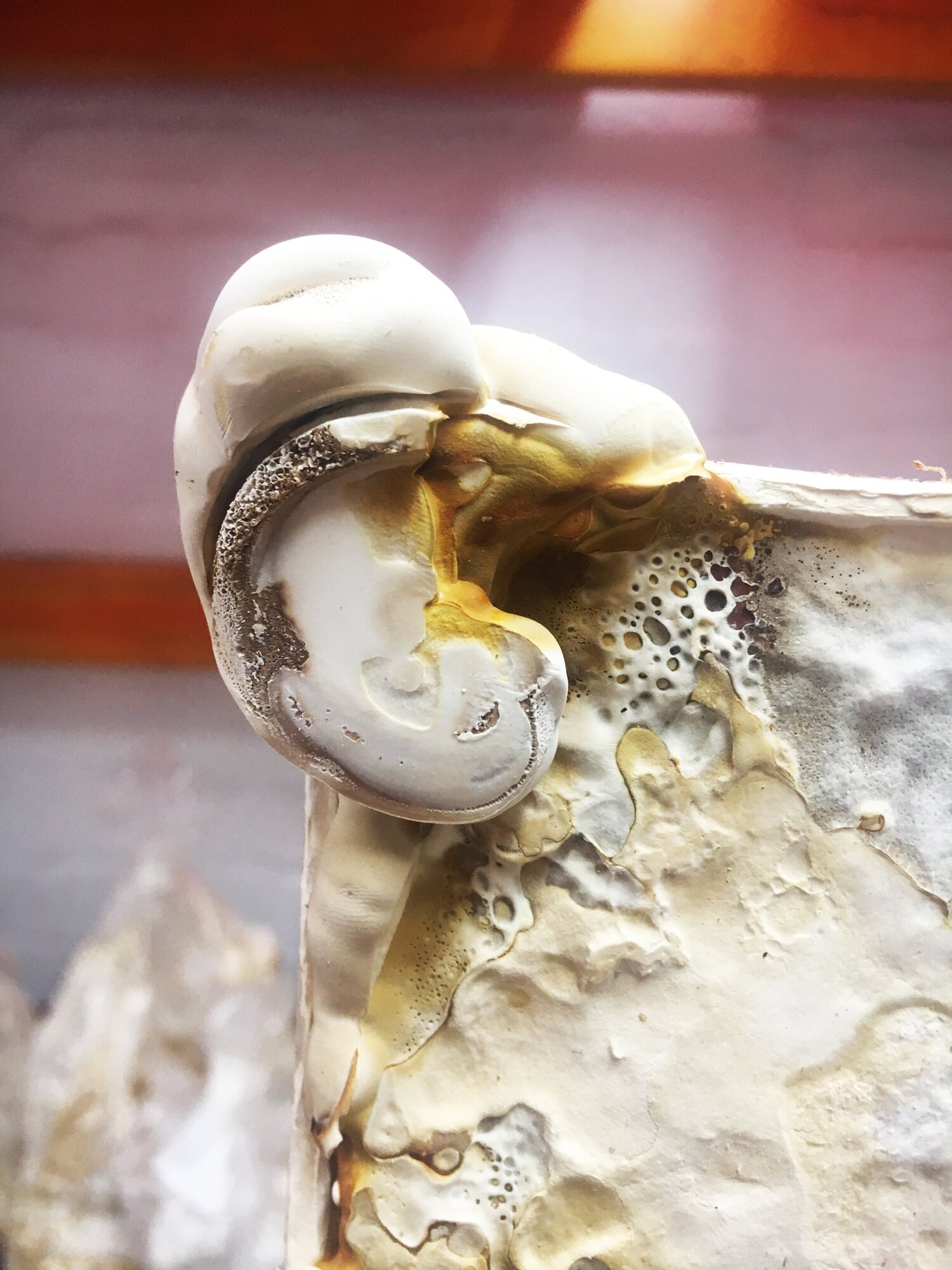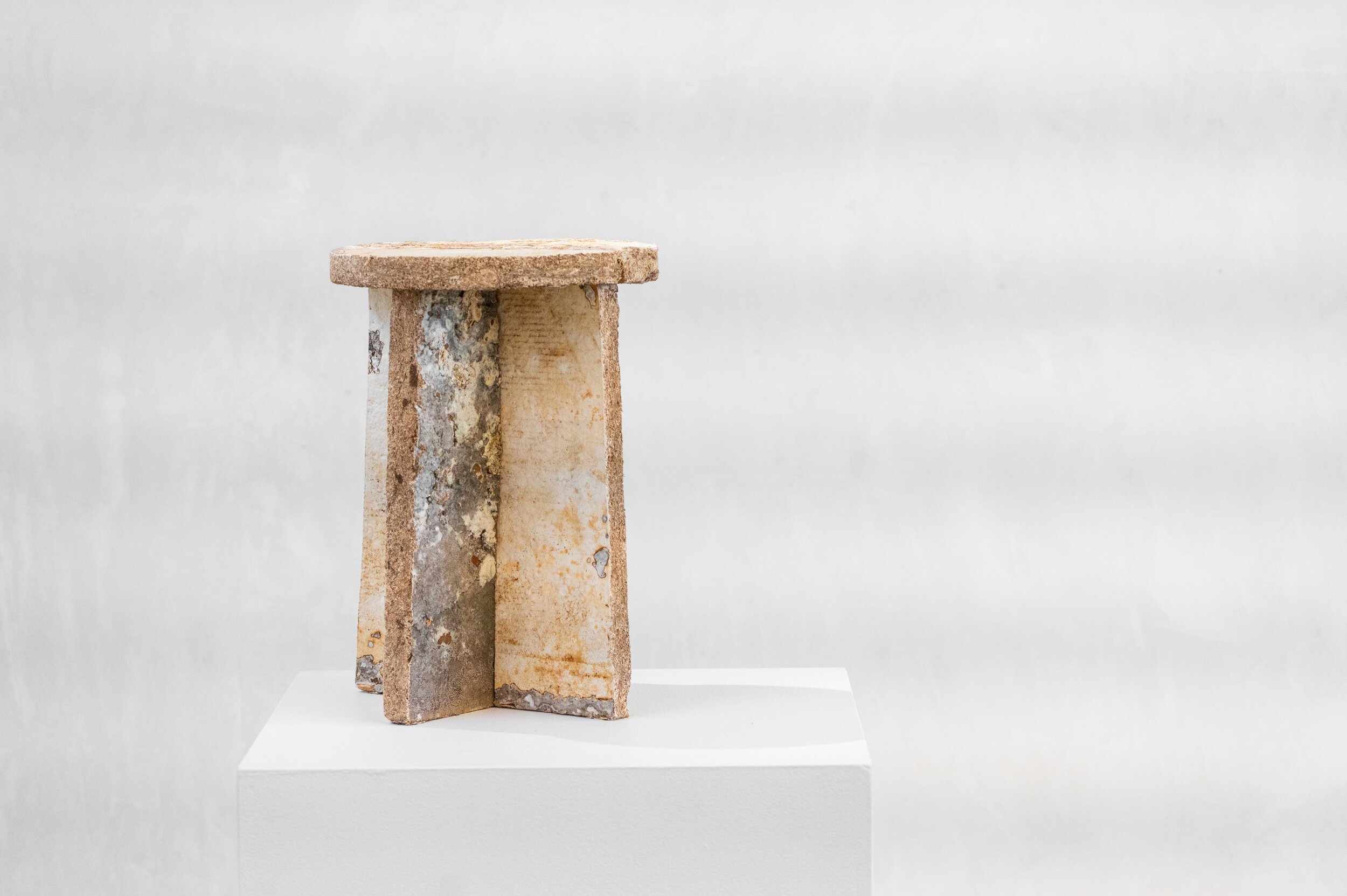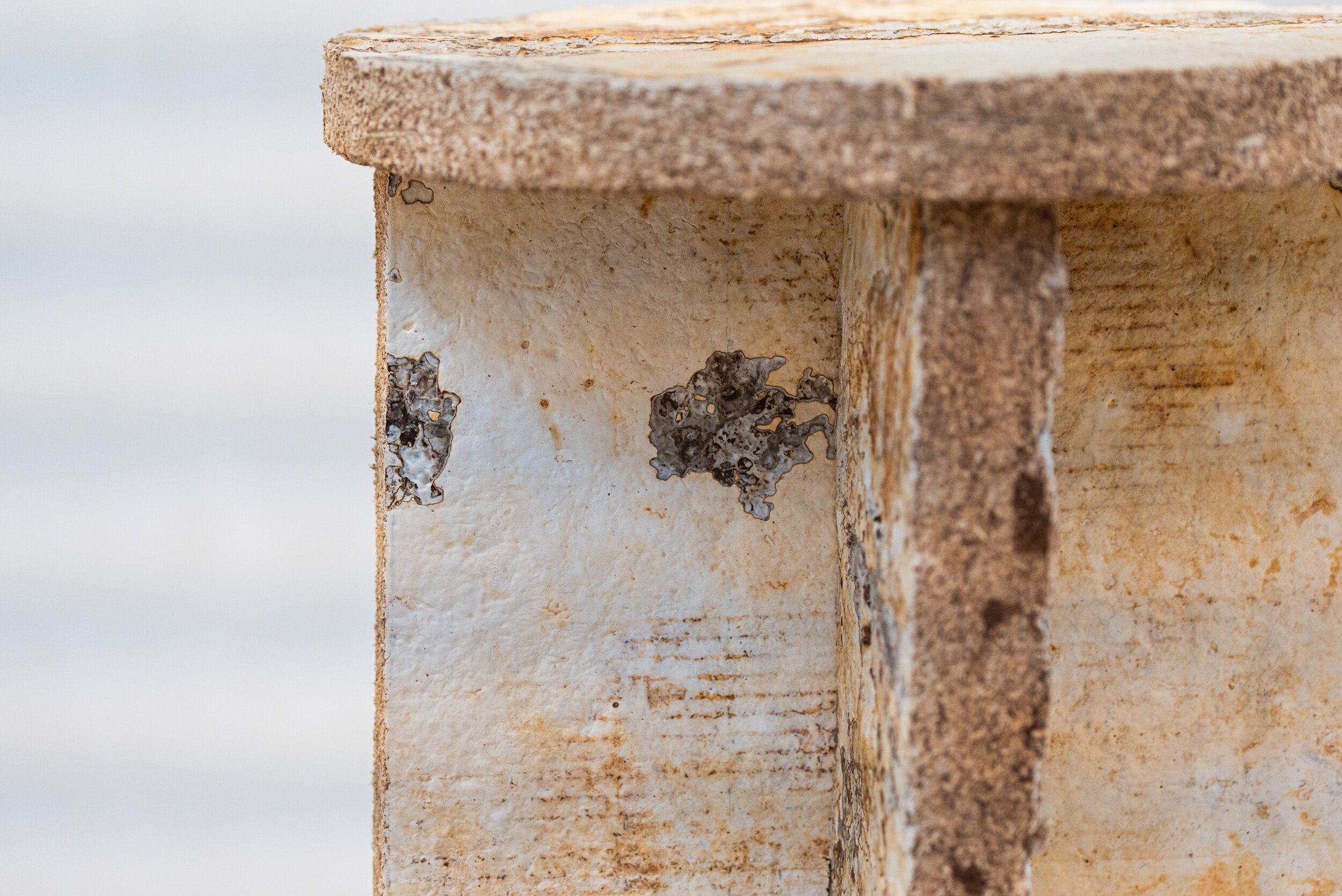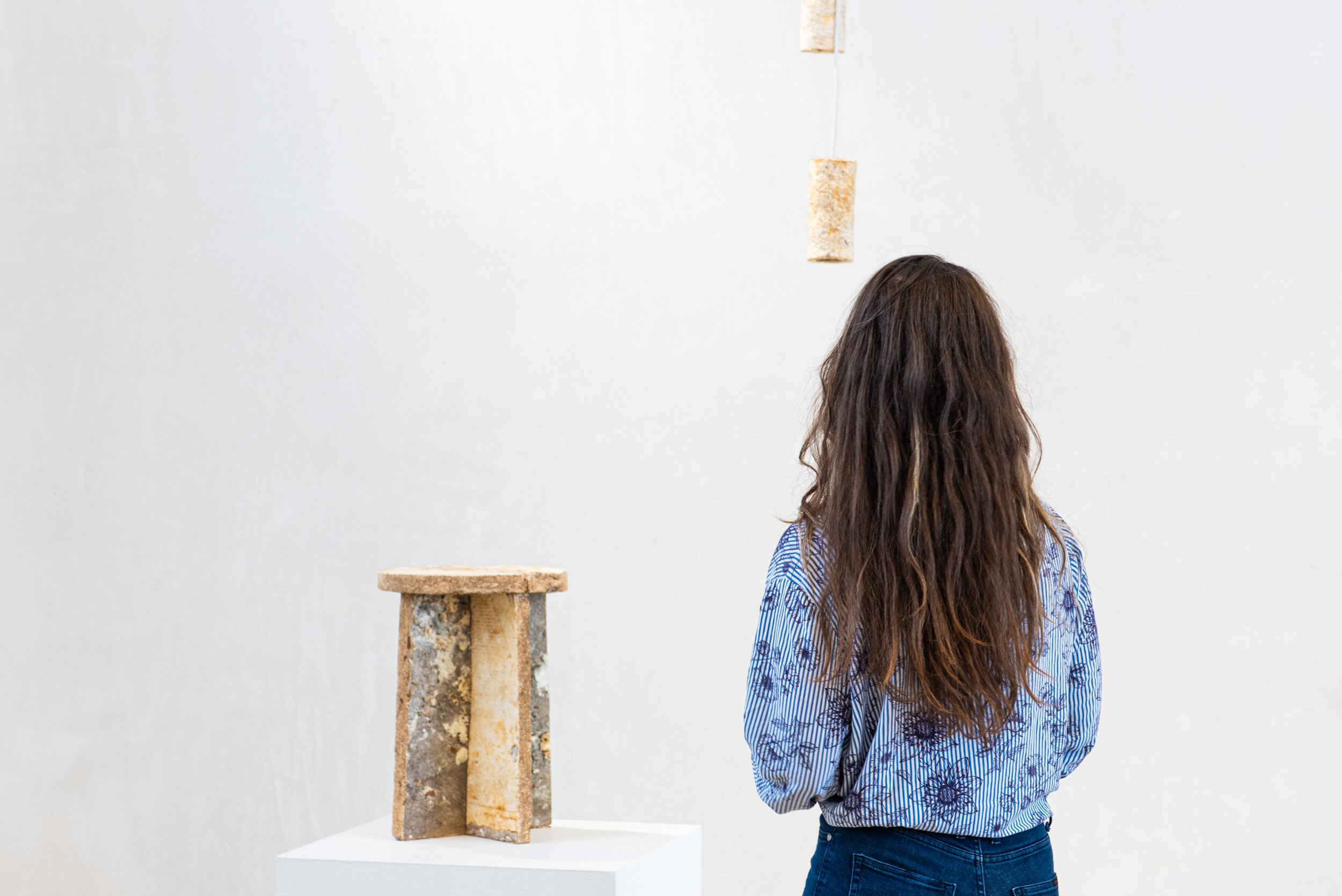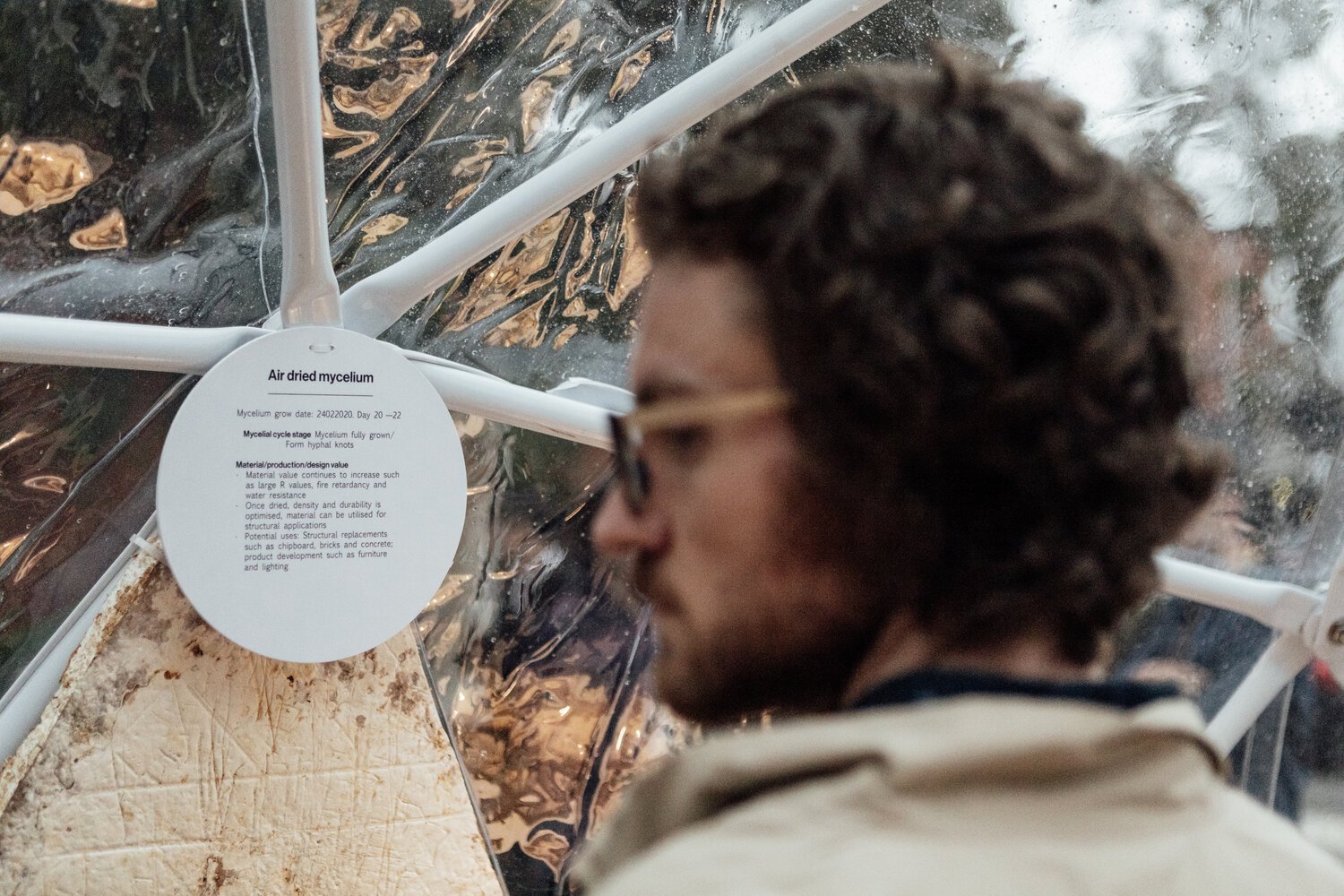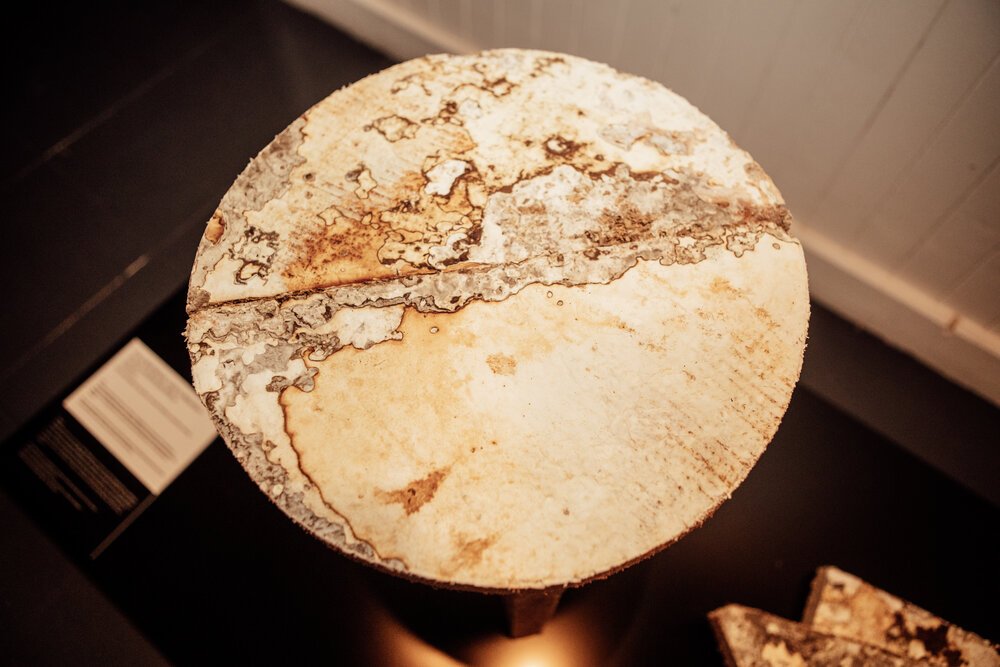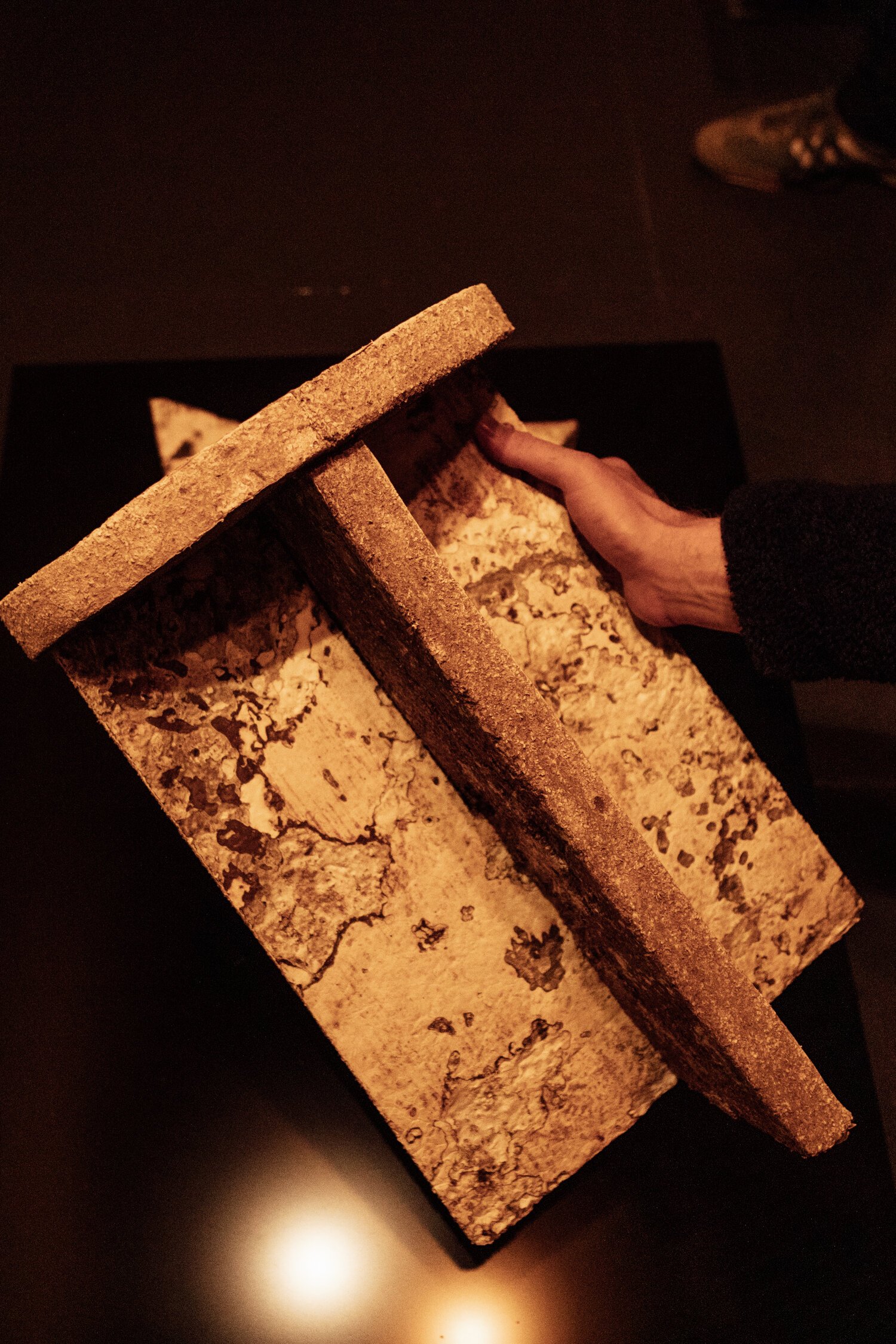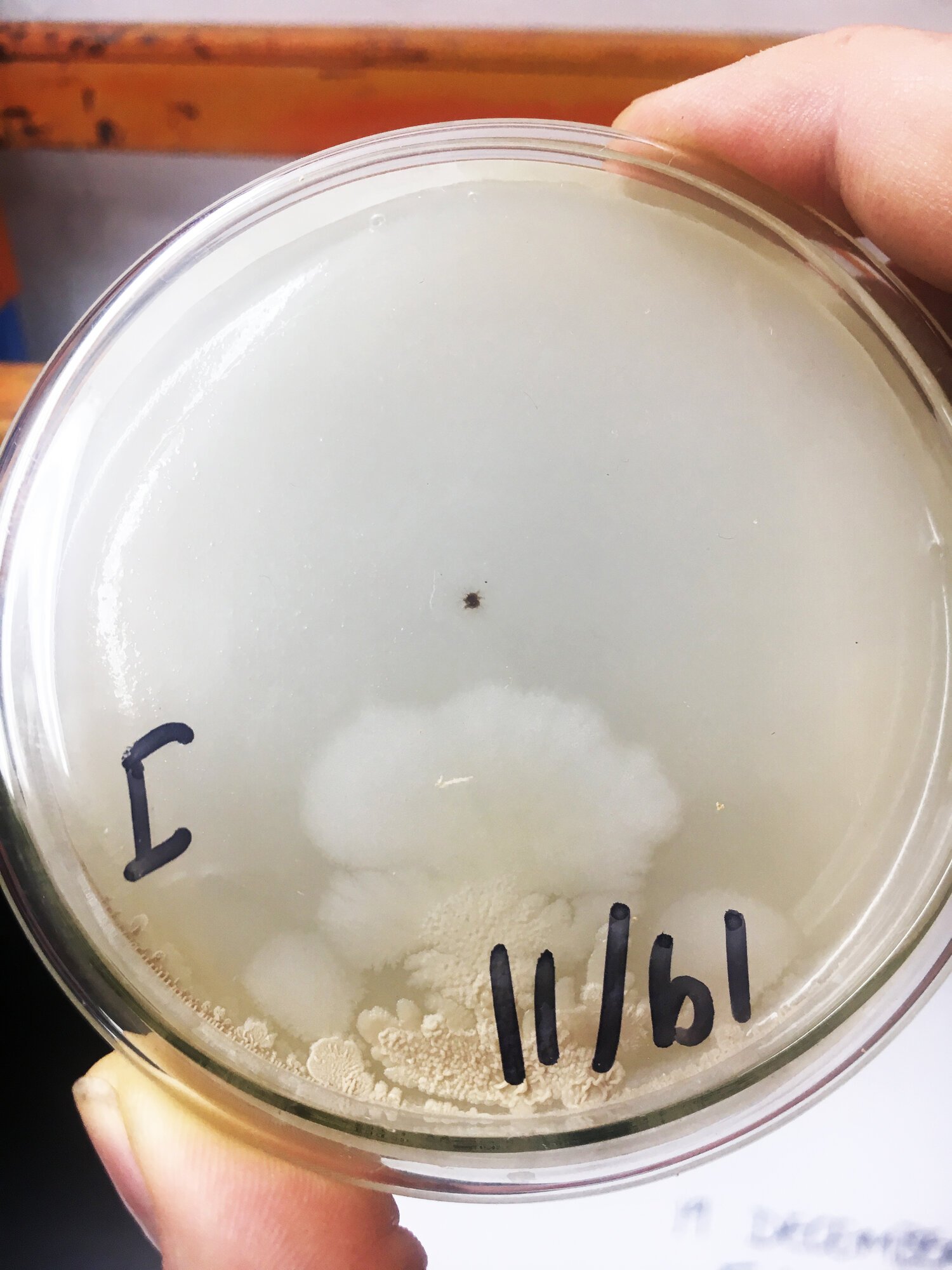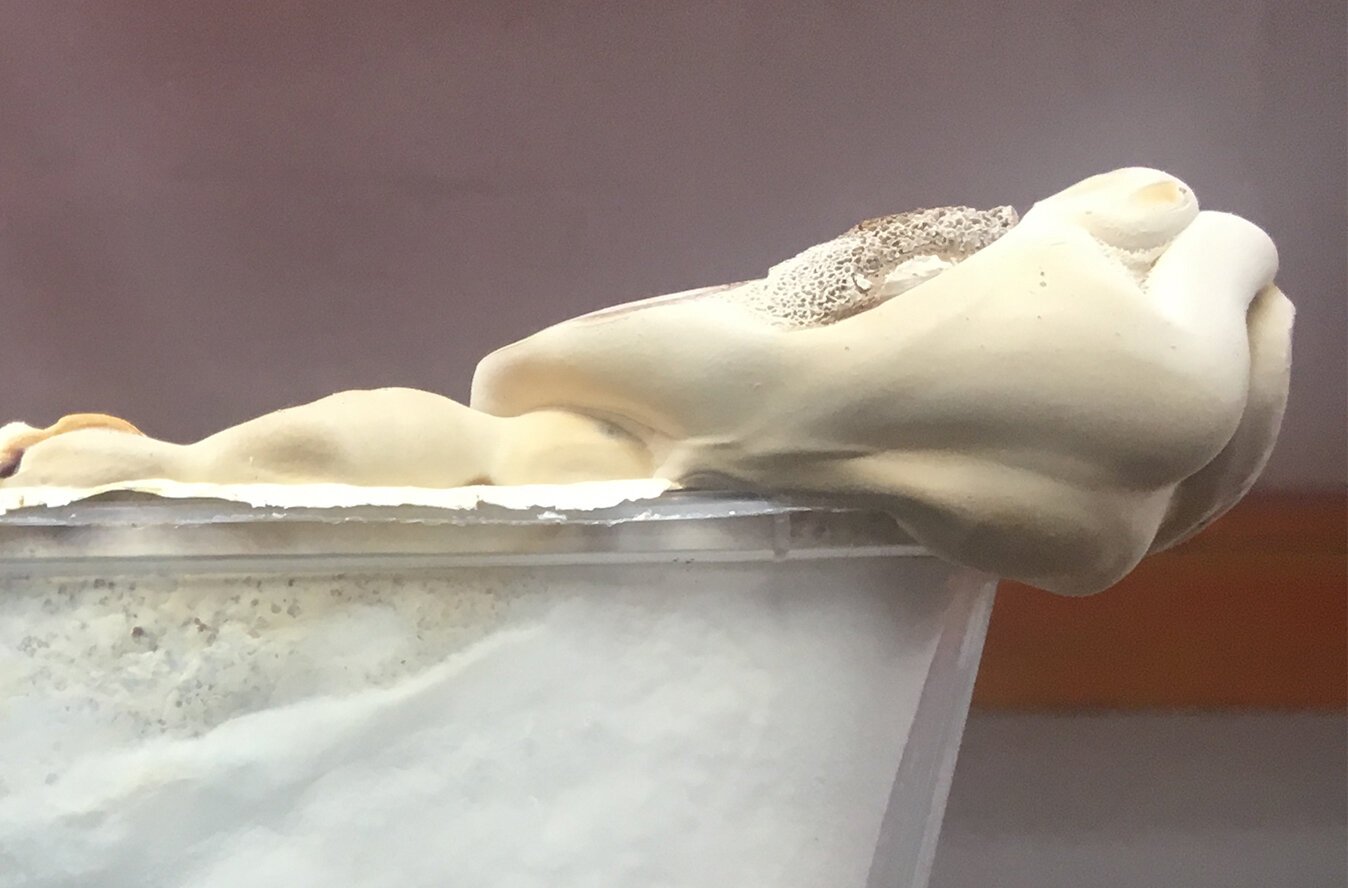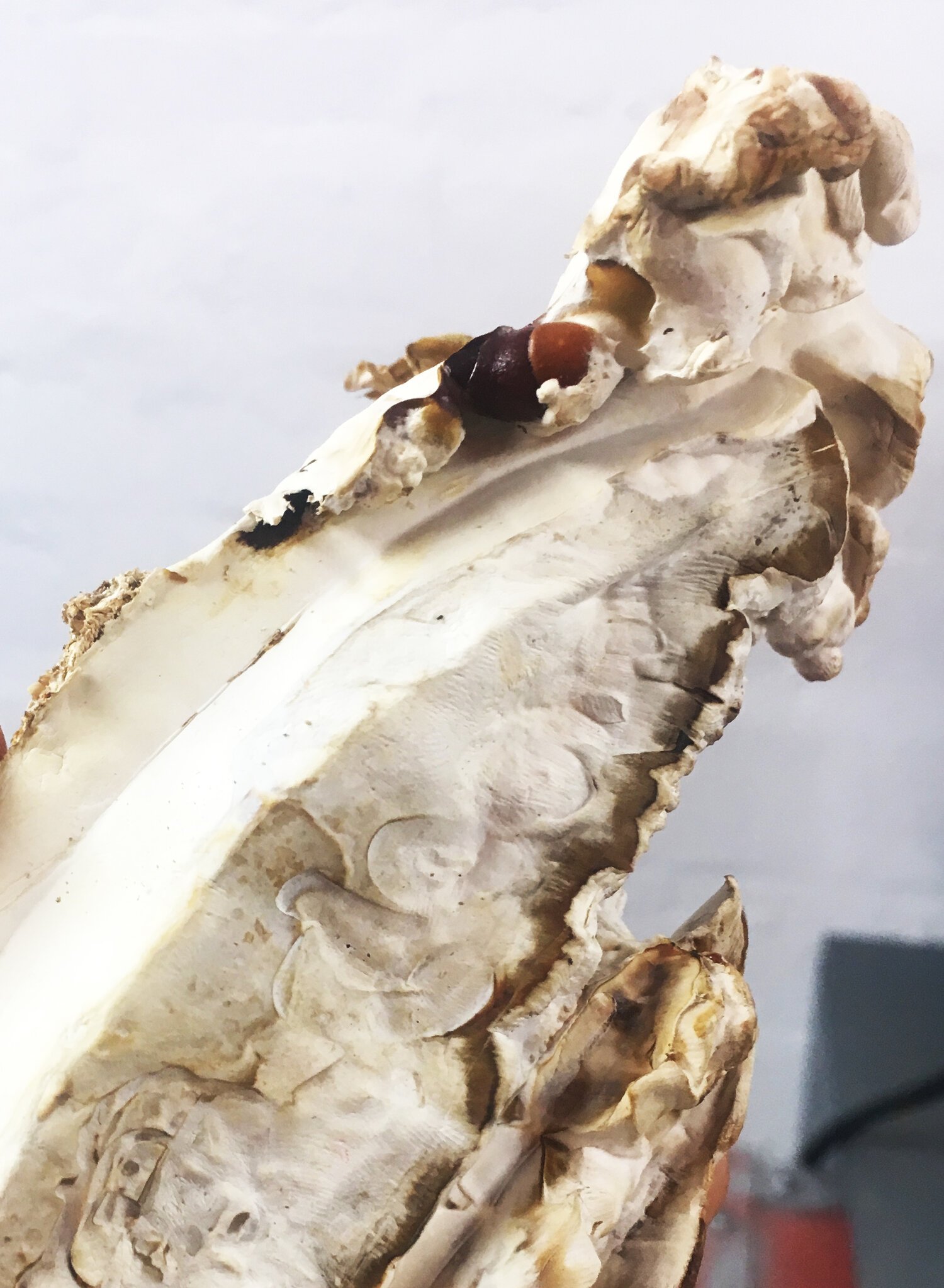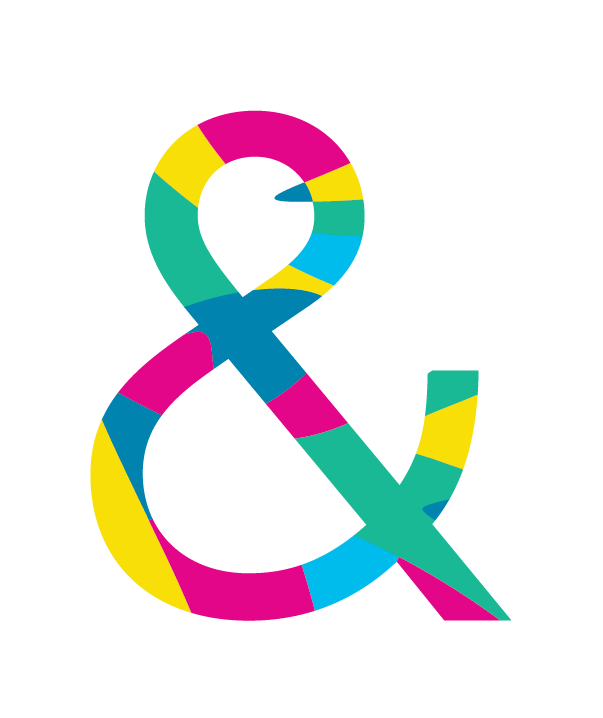
“Directing the growth of mushroom fibers may not sound like a big deal, but this evolution in biofabrication stands to transform the way we manufacture, consume and live.” - Eben Bayer.
MycoLab is a collaboration that explores a shared belief in the need for bio-partnering and ecological design collaboration to drive transitioning to a climate adapted future. Within this, the overhaul of curent industrial systems to be closed loop with growing materials and living human urban systems, whilst engaging in finding creative, possible and rapidly scalable solutions. These shared beliefs are combined with a deep curiosity, a joy in experimentation and a shared love for mycelium as a material. The nexus of the group brings together established designers, ecologists, makers, and creative thinkers to explore the material, experiment with it as a scaled manufacturing process and develop new products and design methods.
Team — Tom Honeyman, Jeremy Taylor, Brendan Morse, Victor Legin, Jesse Prichard, Ed Linacre and Philippa Abbott
Since 2019 we have been experimenting with mycelium composites and developing mycelium based biodegradable materials in our laboratory at Mycelium Studios. The application of mycelium as a viable biodegradable material is gaining traction globally, and we are excited to be on the cusp of the revolution.
Mycolab explores ecology, society and culture through tracing and experimentation with the incredible and underrated material of fungi.
It interweaves material innovation, cultural paradigms of change and behavioural consumerism, exploring future sustainability and the possibility of how we overhaul systems; understand and innovate traditional practice at scale and the hope and possibility that this engenders in a time of deep disillusionment and challenge globally.
This is an experiment that takes a core nutrient to so many human outputs and rethinks their possibility; questions industrial design methods; and explore applications such as soil remediation, eating plastic waste, cancer treatment, waste material utilisation, and biodegradable alternatives to multiple materials.
Our civilisation is at a precipice. We currently face challenges that we have never faced before. We have driven our life support systems to the brink of collapse and we cannot continue to maintain modes of existence that no longer support our species, or our planet’s collective health and wellbeing.
Mycelium, the largest and oldest form of life on this planet is quickly coming to the forefront. Fungi can eat plastic and consume agricultural and industrial waste. Fungi has the potential to replace concrete, rubber, polystyrene, leather, plastics, packaging, biomass, biofuel, insulation and much more.
Mycodome is an exploration of how we can re-interpret how we relate to the natural and built environment and shine a light on new modalities of production. The more we learn from and work with nature, the more we become able to mimic it’s natural rhythms, learn from biological systems and develop ecologically integrated modes of living. We can build innovative new products, services and systems, and with this evolves our economy for the benefit of the planet.
We have the tools for radical and immediate change to our habits of production and consumption. As a design, innovation and material production process this is the beginning of our journey and there is much exploration, development and refinement ahead. This is what makes it such an exciting material to work with. The opportunities to reinvigorate design, products and mass production are exponential.
Experiments, exhibitions and installations:
2023 - [Bio]Restitution. Chromophore. Experimentation - NO THINGS MATTER @ Melbourne Design Week here
2023 - [Bio] Restitution. Creative reflection - IMPERMANENT Exhibition @ Melbourne Design Week here
2021 - Godlight II. Product - PLAY Exhibition at Mona Foma here
2020 - Mycodome - Installation at Melbourne Design Week - see below
2020 - Godlight I - Live product - Life & Death Exhibition at Melbourne Design Week - see below
GODLight
‘Life and Death’ by Friends and Associates, for Melbourne Design Week 2020.
A design collaboration between Ed Linacre and Philippa Abbott. It is one of the ongoing experimental fabrication outputs from our MycoLab.
Originally this piece was installed alive, growing/breathing mycelium as part of NGV Design Week exhibition ‘Life and death’, by Friends and Associates. It would grow (or die) through the ten day exhibition as it interacted with the environmental conditions of the exhibition space... The audience was given a choice - to spray with water and help it grow, or spray with peroxide and stop it growing (or do nothing). For us an exploration of behavioural product, organic forms, sensory immediacy and the relationship between consumerism and ecological death.
Ironically the exhibition was shutdown after opening night due to Coronavirus lockdown, the light dying in isolation and becoming it's final form - due to this extreme environmental factor.
MycoDome for Melbourne Design Week
Mycodome is an immersive installation that explores ecology, society and culture through tracing and experimentation with the incredible and underrated material of fungi. It interweaves material innovation, cultural paradigms of change and behavioural consumerism, exploring future sustainability and the possibility of how we overhaul systems; understand and innovate traditional practice at scale and the hope and possibility that this engenders in a time of deep disillusionment and challenge globally. This is an experiment that takes a core nutrient to so many human outputs and rethinks their possibility; question industrial design methods; and explore applications such as soil remediation, eating plastic waste, cancer treatment, waste material utilisation, and biodegradable alternatives to multiple materials.
Our civilisation is at a precipice. We currently face challenges that we have never faced before. We have driven our life support systems to the brink of collapse and we cannot continue to maintain modes of existence that no longer support our species, or our planet’s collective health and wellbeing. Mycelium, the largest and oldest form of life on this planet is quickly coming to the forefront. Fungi can eat plastic and consume agricultural and industrial waste. Fungi has the potential to replace concrete, rubber, polystyrene, leather, plastics, packaging, biomass, biofuel, insulation and much more.
Mycodome is an exploration of how we can re-interpret how we relate to the natural and built environment and shine a light on new modalities of production. The more we learn from and work with nature, the more we become able to mimic it’s natural rhythms, learn from biological systems and develop ecologically integrated modes of living. We can build innovative new products, services and systems, and with this evolves our economy for the benefit of the planet.
We have the tools for radical and immediate change to our habits of production and consumption. As a design, innovation and material production process this is the beginning of our journey and there is much exploration, development and refinement ahead. This is what makes it such an exciting material to work with. The opportunities to reinvigorate design, products and mass production are exponential. Mycodome is an exhibition of the cycle of growth. It expresses a new paradigm of understanding production as a living process with an innate ecological value and huge potential.
